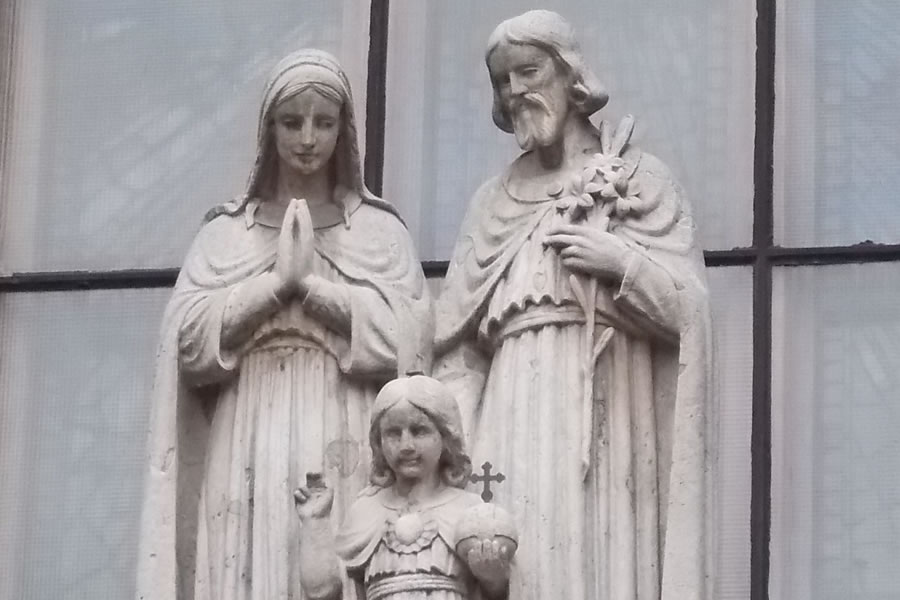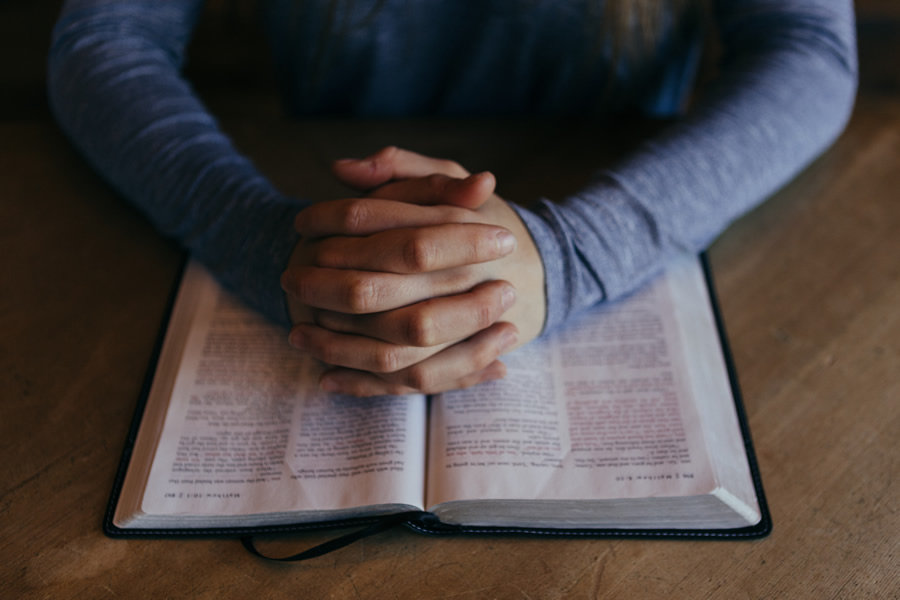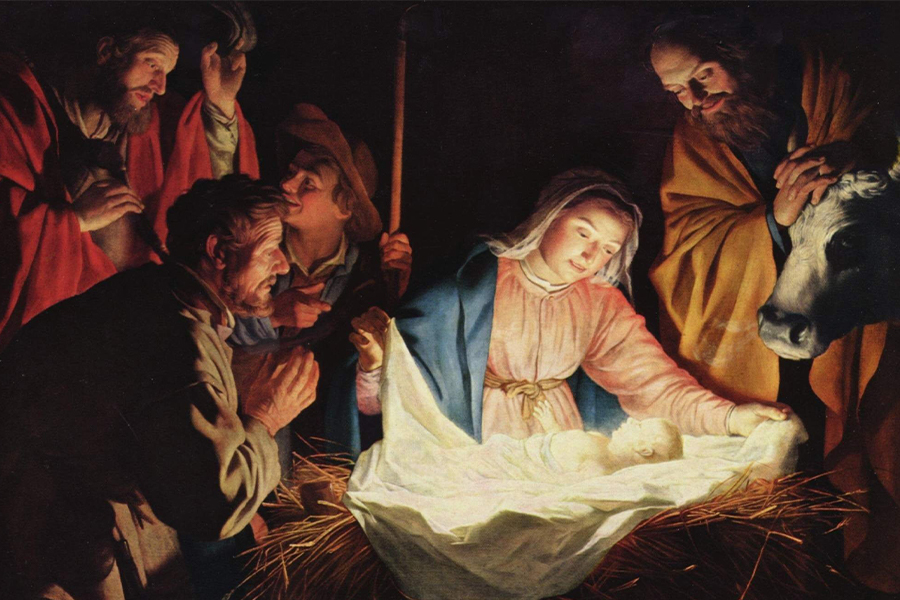St. Francis of Assisi Weekly Reflections

The Holy Family: Jesus, Mary and Joseph
12-31-2017Weekly ReflectionWe Celebrate Worship Resource, Vol. 43, No. 1Today we hear the Gospel passage that ends with the Holy Family returning to Nazareth. Very little is written about Jesus between his infancy and his adulthood. It is left to the imagination what Jesus' life was like, or indeed what his family's life was like for that entire time. We know that they lived in Nazareth of Galilee. We know that Joseph was a carpenter. Did Jesus learn the trade as well? Did he help his father out when he got older? Significantly, we never see or hear from Joseph in the Gospels during the time Jesus is an adult. It is theorized that he probably died sometime before Jesus left Nazareth and began his public ministry. What would that have been life for his family? Was Joseph unable to work in his later years? Did Jesus help Mary take care of his aging foster father? Was Mary a single mother before Jesus became an adult? Did she rely on relatives, friends, and neighbors as she raised her son? We don't know the answers to these questions, but we can assume that the Holy Family faced a lot of the same concerns and difficulties that other families have faced, that families continue to face today.
In what ways might the Holy Family be like your family?
READ MOREJanuary 1
12-31-2017Liturgy CornerFr. Paul Turner © 2001 Resource Publications, Inc.January 1 is New Year's Day to most of the world, but in the Catholic Church it is also the solemnity of the Blessed Virgin Mary, Mother of God. This is a relatively new title for the day. Older Catholics will remember that we used to call January 1 the Feast of the Circumcision.
READ MORETrust in God
12-31-2017Question of the Week- Reading I: Genesis 15:1-6, 21:1-3 (God's promise of family for Abraham)
- Reading II: Hebrews 11:8, 11-12, 17-19 (Abraham's reward for his trust in God)
- Gospel: Luke 2:22-40 (Simeon's proclamation of God's promise of salvation)
- Key Passage: The child grew and became strong, filled with wisdom; and the favor of God was upon him. (Luke 2:40)
- Adults: Are you obedient to God's will for you?
- Children: In what ways are you obedient to your parents?
Proclamation of the Birth of Christ
12-24-2017Liturgy CornerFr. Paul Turner © 2004 Resource Publications, Inc.The "Proclamation of the Birth of Christ" is a formal announcement that may be sung at Christmas Midnight Mass. The proclamation states that "today," the 25th of December, "is the nativity of our Lord Jesus Christ according to the flesh." It recalls the main events of history: the creation of the heavens and the earth and of man and woman in God's own image; the appearance of the rainbow, the sign of God's covenant, after the flood; Abraham and Sarah, the ancestors of Israel; the Exodus from Egypt under Moses; the presence of Ruth and the judges; the anointing of David as king; the prophecy of Daniel; the founding of Greece and Rome; and the peace of Augustus. The birth of Christ culminates both secular and religious history. It is an event that flows seamlessly from the past and begins a new era of hope and peace.
READ MORE
Are you Receptive to God’s Will?
12-24-2017Weekly ReflectionWe Celebrate Worship Resource, Vol. 43, No. 1The Fourth Week of Advent is surprisingly short this year. It starts today and it ends today. After all, it's already Christmas Eve! The readings today also offer a couple of surprises, one to David and one to Mary. In Second Samuel, David wants to build a house (a dwelling place) for the ark of the covenant. But God tells the prophet Nathan that instead God will establish a house (a dynasty) of David. It is a much more important kind of house, a house that provides for all of Israel. In the Gospel, we find out that Joseph is of the house of David, connecting Jesus to this dynasty that God promised would endure forever. But the thrust of the message of today's Gospel is the announcement that the angel Gabriel brings and Mary's acceptance. In Mary, the Father has chosen a dwelling place for the Son. Mary, shocked by the news, was troubled and could not believe it was possible. But after being reassured by the angel and told that Elizabeth has also conceived a son, she accepts her role: " 'May it be done to me according to your word'" (Luke 1:38). Mary is a perfect model of receptivity to God's will.
What does God ask of us in order to bring Jesus into our hearts? Are we receptive?
READ MOREAcceptance of God's Will
12-24-2017Question of the Week- Reading I: 2 Samuel 7:1-5, 8b-12, 14a, 16 (The Lord's promises to David)
- Reading II: Romans 16:25-27 (Doxology)
- Gospel: Luke 1:26-38 (The annunciation of the Lord)
- Key Passage: Then Mary said, "Here am I, the servant of the Lord; let it be with me according to your word." Then the angel departed from her. (Luke 1:38)
- Adults: What work of justice could you do this week to bring someone joy?
- Children: Is there something hard you need to do this week? What might make it easier?
Las Posadas
12-17-2017Liturgy CornerFr. Paul Turner © 2000 Resource Publications, Inc.Las posadas means "the inns" in Spanish and refers to a Mexican Christmas custom. Beginning on December 16, family and friends or communities recreate the experience of Mary and Joseph searching for a place to stay in Bethlehem. The celebration takes place in streets and homes with a powerful message. In the incarnation, God offered salvation to everyone, even the poor and homeless.
A couple dressed as Joseph and Mary is accompanied by members of the community bearing candles. They walk in procession and approach a house in the neighborhood, praying and singing Christmas carols. They knock on the door and sing a special song for the celebration of Las Posadas. In this song Joseph, outside the house, requests lodging for the night because his wife is weary from the journey. Those inside sing back that they do not know the visitors and there is no room; the couple must go to another place. The candlelight procession continues to house after house. Finally, the residents of one home offer them shelter. All enter joyfully and celebrate a fiesta, complete with piñata.
READ MOREBringing Joy through Justice
12-17-2017Question of the Week- Reading I: Isaiah 61:1-2a, 10-11 (The mission to the afflicted)
- Reading II: 1 Thessalonians 5:16-24 (Christian conduct; blessing)
- Gospel: John 1:6-8, 19-28 (John as witness to the light)
- Key Passage: The Lord is not slow about his promise, as some think of slowness, but is patient with you, not wanting any to perish but all to come to repentance. (2 Peter 3:9)
- Adults: What work of justice could you do this week to bring someone joy?

My Spirit Rejoices in God my Savior
12-17-2017Weekly ReflectionWe Celebrate Worship Resource, Vol. 43, No. 1Today we celebrate Gaudete Sunday, Gaudete meaning rejoice in Latin. The Church marks this Sunday as an occasion to focus on the joy, instead of the anxiety, in our wait for Jesus’ coming. Many of us are in panic mode at this time as we try to do all the things we need to do by Christmas. But today is a day of rejoicing. In the reading from Isaiah, God’s chosen people had just returned from exile. They are truly feeling “a year of favor...a day of vindication” (Isaiah 61:2). In the responsorial psalm we hear the words of Mary after she was visited by the angel Gabriel. She had been anxious when the angel first told her the news and no doubt would be anxious again when traveling to Bethlehem in her ninth month. But for now she proclaims, “my spirit rejoices in God my Savior” (Luke 1:47), and praises what God has done for her and God’s chosen people. Paul likewise encouraged the Thessalonians to “Rejoice always” (1 Thessalonians 5:16). And in the Gospel John introduces us to John the Baptist, who quotes Isaiah as “ the voice of one crying out in the desert, make straight the way of the Lord’” (John 1:23).
What gives us joy a week before Christmas?
READ MOREMark
12-10-2017Liturgy CornerFr. Paul Turner © 2000 Resource Publications, Inc.Mark is the Gospel featured at Mass in Year B of the three-year cycle of Sunday readings. Notable exceptions occur during Advent, Christmas, Lent, Easter, and across five weeks in summer, when we hear the Bread of Life discourse from John. Mark is the shortest of the four Gospels. Mark was probably the first Gospel written. Parts of it appear in both Matthew and Luke, who also used other materials that do not appear in Mark. Because Mark included Jesus’ saying about the destruction of the Temple, a prediction fulfilled in the year 70, the date of composition is thought to be around then.
READ MORE
Be Patient and Prepare the way of the Lord
12-10-2017Weekly ReflectionWe Celebrate Worship Resource, Vol. 43, No. 1Waiting can be the most difficult thing to endure, especially when you wonder if it will ever end. Whether waiting for a bus in the middle of winter or waiting to find out whether you will get that promotion you want, the stress can be overwhelming. The writer of this section of Isaiah knows what this is like. He wrote during the period in which God’s chosen people lived in exile. But he brings comfort and hope. He foresees a time when God will move mountains to prepare a way out of the desert. And God will do so tenderly, for “in his arms he gathers the lambs, carrying them in his bosom” (Isaiah 40:11). The author of Second Peter wrote during another difficult time, about one hundred years after Jesus. Christians who believed that the Second Coming was imminent were losing faith. He reassured them that human understanding of time was not like God’s. In fact, our God is a patient God, giving time for people to be brought to repentance. God’s promise finds voice in John the Baptist “crying out in the desert: ‘Prepare the way of the Lord’” (Mark 1:3). He is coming. We just need patience.
When have you lost patience while waiting? What helps you persevere while you wait?
READ MOREPatience
12-10-2017Question of the Week- Reading I: Isaiah 40:1-5, 9-11 (Promise of salvation)
- Reading II: 2 Peter 3:8-14 (Christ will come in judgment)
- Gospel: Mark 1:1-8 (John the Baptist)
- Key Passage: The Lord is not slow about his promise, as some think of slowness, but is patient with you, not wanting any to perish but all to come to repentance. (2 Peter 3:9)
- Adults: With whom could you be more patient this week, as God has been patient with you?
- Kids: With whom can you be more patient?
God's Faithfulness
12-03-2017Question of the Week- Reading I: Isaiah 63:16b-17, 19b; 64:2-7 (Prayer for the return of God's favor)
- Reading II: 1 Corinthians 1:3-9 (Thanksgiving)
- Gospel: Mark 13:33-37 - (Need for watchfulness)
- Key Passage: God is faithful; and by him you were called into the fellowship of his Son, Jesus Christ our Lord. (1 Corinthians 1:9)
- Adults: How do you know when you're following Christ and living his teachings faithfully?
- Kids: What good thing might God be asking you to do right now?

Are you allowing God to mold you?
12-03-2017Weekly ReflectionWe Celebrate Worship Resource, Vol. 42, No. 2Advent is significantly shorter this year. Last year Advent began on November 27; this year it begins nearly a whole week later. It makes us even more anxious. We have less time to buy presents, write cards, bake cookies, decorate the home, prepare for gathering, and so on. The passage from Mark's Gospel we hear today warns us to be ready, but in a different sense. We are to be prepared, not in the sense of having presents wrapped and the tree trimmed, but prepared to receive Christ into our lives in a special way. The people of Isaiah's time were not prepared. They had turned away from God time and again. The prophet admonishes God's people, himself included, saying, "we have all withered like leaves," an image certainly appropriate to this season (Isaiah 34:5). But the passage closes with the assurance that God can mold us, as a potter works the clay. The Christian community in Corinth allowed this to happen and Saint Paul assures them that God "will keep you firm to the end," molding them, as it were, into a faithful people (1 Corinthians 1:8).
How have you allowed God to mold you? Are you firm in your faithfulness to God?
READ MOREAdvent Wreath
12-03-2017Liturgy CornerFr. Paul Turner © 2002 Resource Publications, Inc.An Advent wreath symbolizes our longing for the coming of Christ. The wreath is a circle of evergreen branches into which are set four candles. Traditionally, three candles are violet and one is rose, but four violet or four white candles may also be used. The wreath symbolizes many things. Evergreens signify God's enduring promise of redemption, evident like green branches in the midst of snow. The circle signifies our hope for the return of Christ, whose kingdom will have no end. The colors of the candles match the traditional colors of the vesture for the four Sundays of Advent. Violet garments signify our penitent hope for salvation. The rose color, which may be worn on Advent's Third Sunday, signals that the season is nearly over—joy is at hand!
READ MORE